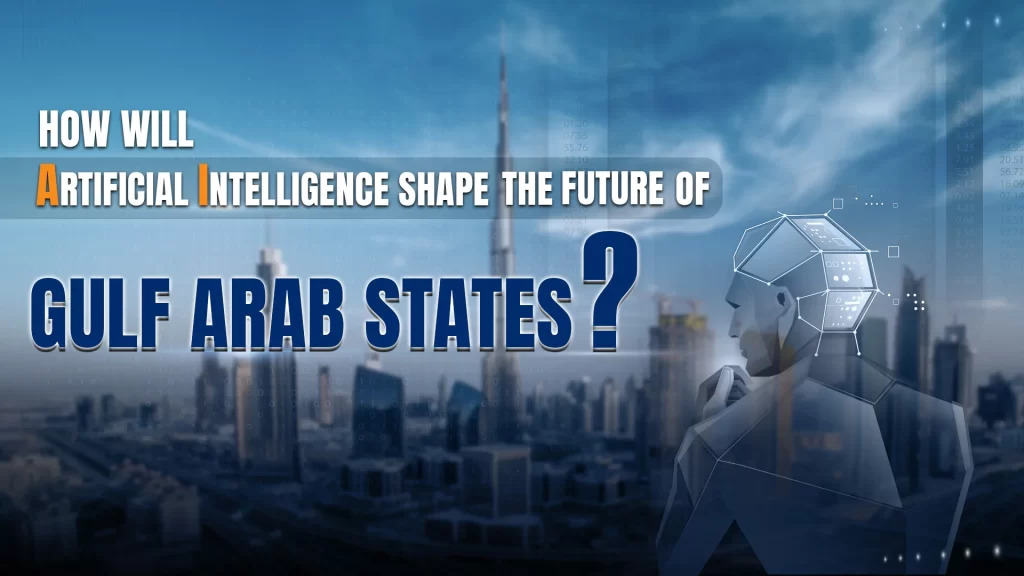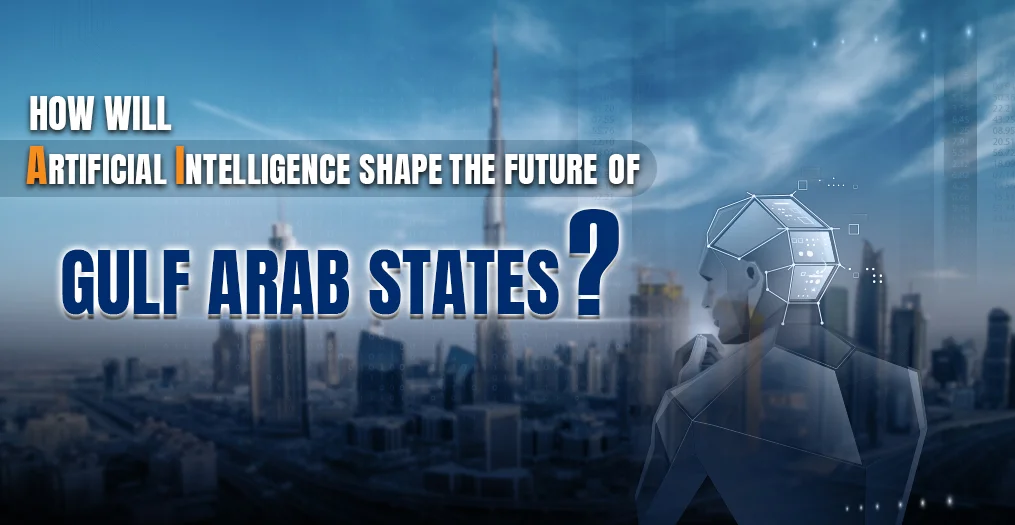How will Artificial Intelligence shape the future of Gulf Arab states?
How will Artificial Intelligence shape the future of Gulf Arab states?
AI is one of the largest technologies in GCC countries, especially in the UAE and Saudi Arabia. It is expected to be a game changer worldwide, with a contribution predicted at $15.7 trillion by 2030. Considering such essential global transformation, the Service Council for the Arab States of the Gulf (GCC) is at a definite crossroads. There is a basic requirement for methodologies to be developed around AI in several sectors of the economy, both to capture this developing economic opportunity and to secure competitiveness with different states and actors worldwide.

By 2025, global incomes from AI are projected to increase to $90 billion, rising on average by 45 percent each year. Aside from this, longer-term project AI will contribute to a 14 percent rise in worldwide GDP by 2030, similar to an extra $15.7 trillion.
As a result, AI is a major commercial, and Vision 2030 aims to diversify the Saudi economy by combining current technological advances. For example, Saudi Arabia has turned into the first country in the world to award citizenship to an AI-powered humanoid robot known as Sophia. To develop Neom, the PIF has openly devoted $500 billion. But Saudi Arabia’s goal is to combine its resources with those of local and global investors. By 2030, the Kingdom expects Neom to contribute $100 billion in annual GDP returns.
The UAE Government started its Artificial Intelligence methodology in 2017, which denoted its government’s reliance on several future services, sectors, and framework projects using AI. With this action, UAE goals to be the world forerunner in Artificial Intelligence by 2031 and grow the utilization of AI across sectors like education, energy, transportation, space, innovation, etc. Al is essential in preventing the spread of COVID-19 in the UAE. The UAE government has used Artificial Intelligence to restrict the movement of the Dubai community by utilizing a program known as ‘Oyoon’. This program supervises the permits of the community who leave their homes by utilizing facial, voice, and license plate identification.
In Jan 2020, His Highness Shaikh Mohammad Bin Rashid Al Maktoum introduced two AI to speed up the deployment of AI technology. These actions, such as the AI Talent Hunt Programme, were introduced to support AI expertise and talent and create UAE as the first option for AI technology organizations and talents from around the globe. The Kingdom of Saudi Arabia (KSA), one of the six countries of the GCC, is projected to gain the most from the move toward AI, with an expected economic contribution of US$135.2 billion. The UAE will gain from a contribution of US$96.0 billion, and the other four countries are projected to share a rise of US$45.9 billion. The UAE&’;s economy will receive the largest contribution from AI, accounting for 14% of its GDP relative to the GDP of each nation.
AI development has turned into a global field, pulling interdisciplinary strands together to develop devices that can work freely in complex and transforming environments. For more than 70 years, AI development has had objective of making computer capabilities in four wide sectors such as natural language processing (NLP), knowledge representation (KR), automated reasoning (AR), and machine learning (ML).
AI is increasingly turning into a multisectoral transformative device all over the world. For Gulf countries such as Saudi Arabia and Kuwait, Artificial Intelligence is viewed as the future motor of state transformation. A future that cannot be conveyed by depending on hydrocarbon energizes. However, beyond a dependency on energy resources, AI technologies open up a pathway for authoritarian persistence and regime survival.

